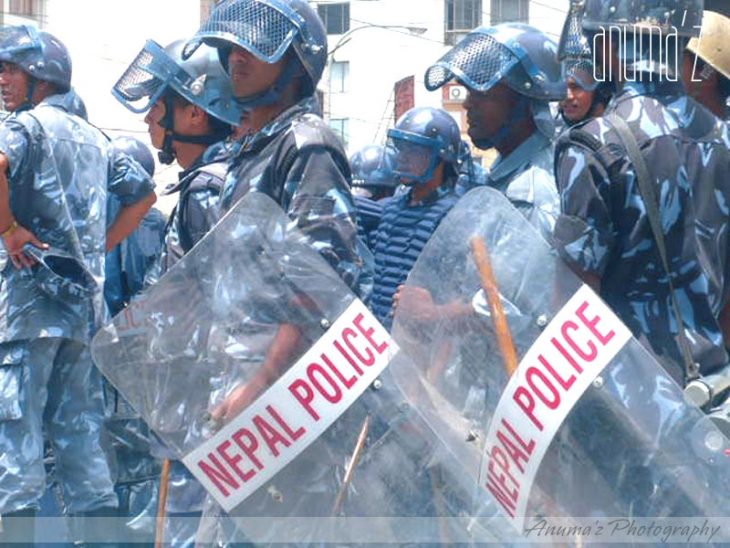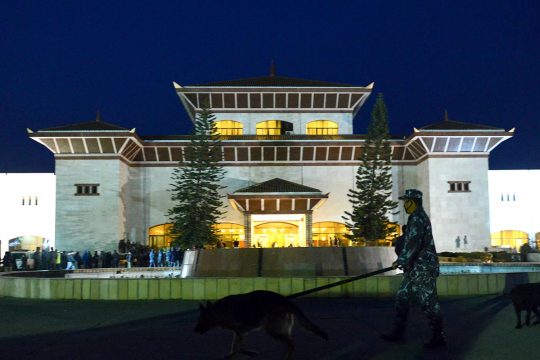The conflicting parties’ alliance (Nepali Congress and Maoist Centre) to share power in the government has destroyed the norms of justice and the agenda set by the Peoples’ Movement. They abused their authority without addressing conflict survivors’ key demands for truth and social justice.
When the top level leaders from both sides of the conflict built an alliance with security forces to forget about past abuses, compromising standards for their mutual benefit and position, the hope for fair trials and justice has become a distance one for ordinary citizens. Instead of creating hope for the future, the political forces built a strong alliance with the security forces who were directly involved in the most egregious human rights violations during the armed conflict. This alliance has served to sabotage the peace process by establishing an amnesty commission to hide the truth and protect alleged perpetrators. This represents a betrayal of the citizenry and of every element of the transitional justice process. Both commissions after 3 years of their establishment now argue that they cannot finish their task within the mandated time, this is great shame shame for the commissions, who abused public resources to assist political amnesty and indirectly supported alleged perpetrators without questioning their past, and in so doing insulted the wider community of victims and the general public.
The system failed to deliver
Overcoming the threats of state agents, victims and frontline activists have been raising their voices, after a long wait for justice. As a result, they are facing more threats, and a deeper feeling of injustice and insecurity. For the victims and marginalised groups in Nepal, the justice system has failed to deliver; the state never implemented local court verdicts, Supreme Court decisions or the National Human Rights Commissions’(NHRC) recommendations, and ignored the UN Human Rights Committee’s views on the violations of ICCPR provisions. The question is: where should victims’ families go in this complex situation and what strategies should they adapt?
Most families know the alleged perpetrators of the crimes committed. Personally I have been naming the people responsible for my father’s illegal arrest, torture and disappearance since 2001: they are Pitamber Adhikari, Shiva Nepal and Santoshsing Thakuri. There is a long list of alleged perpetrators in hand and almost public in the Nepal context. Thousands of families registered complaints in the ongoing commission process, and provided the alleged names, however all the government mechanisms and state-led commissions failed to publish the names and fully investigate the crimes committed. Instead, the alleged perpetrators have been promoted, protected and have powerfully defended their past abuses without accepting guilt.
There have been no credible investigations and no institutional reforms of either state of the security forces. Instead, political parties are actually promoting alleged perpetrators, protecting criminals and defending the security forces without vetting them. All in the name of political consensus and political alliance to protect their future, while actually laying the ground for renewed conflict.
In this situation of increasing threats and subversion of the political process, there is no meaning to extend or continue the mandate of the existing commissions. There is no possibility to amend or revise the commissions’ legal mandates before they reach their end. If the government seriously seeks to speak the truth for its victimized citizens, the content of the current Act, its driving principles and all procedural approaches need to be amended in coordination with victims’ representatives; otherwise the state approach to ‘their’ commission has failed, and failed all those actors, both national and international, who were actively involve in the name of transition in Nepal.
Truth Commission
The attempt at a Nepali truth commission failed largely because of the state and the parties' unwillingness to allow the formation of an independent commission. A number of key people in the Nepal peace process have not internalized the core value of social justice and didn’t cooperate at any point of the process – either the recent ‘left alliance’, security forces, or the current prime minister Sher Bahadur Deuba’s alliance, himself an abuser and defender of his crimes. Thus the new political alliance in whatever cover is a dangerous alliance for poor victims and marginalised communities who may become further isolated and increasingly unable to fight for their rights. In the situation of the betrayal of the commissions, political irresponsibility and security intervention, conflict survivors and victims of conflict must organize local resistance through naming of perpetrators, boycotting abusers in public level as the basis of social intervention.
Recently the Nepal army challenged the district court and Supreme Court verdicts against their personnel who committed crimes. Through filing a writ petition (074-W0-0143) against Maina Sunuwar’s torture, rape and murder case, against family activist Devi Sunuwar (mother of Maina) including the National Human Rights Commission, the Army headquarters is threatening activists and the human rights community. The political alliances are promoting and providing tickets to many alleged perpetrators, the corrupt and criminals in the upcoming election, that may bring serious consequences for the future course of Nepali politics. Let’s boycott and empower locals against the abusers.. Both political and security alliances are openly challenging the rule of law, legitimizing their crimes through unhealthy alliances and hiding the truth against the spirit of the Peoples Movement. This is a tough time for rights activists and the grassroots struggle for social justice. This is time for defending the rights struggle and creating momentum for a unified peoples struggle as an alternative.






